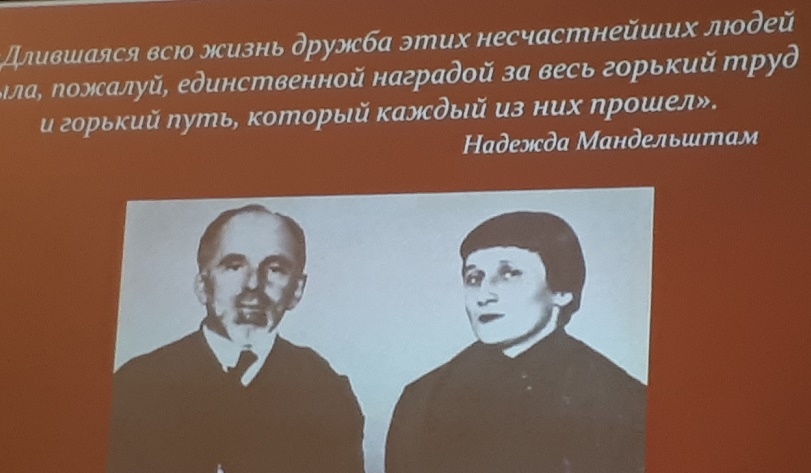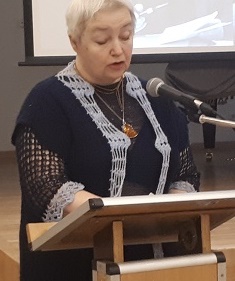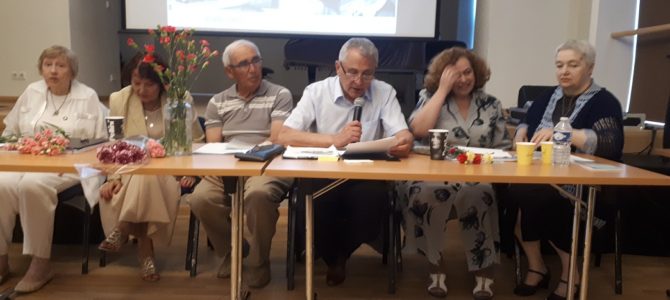
Osip Mandelshtam and Anna Akhmatova

The Lithuanian Jewish Community held a conference on Jewish influences in the life and work of Russian poetess Anna Akhmatova on June 5. The conference was initiated by poetess Elena Suodienė, a doctor of the liberal arts and recipient of the Golden Quill award from the European Academy of Art and Literature.
Dr. Suodienė presented at the conference her new and newly-published poem in Russian about Akhmatova. She wrote a special article exclusively for www.lzb.lt about the Akhmatova the great poetess and the extraordinary person.
Unlike Pushkin, Mandelshtam and Svetayava, Anna Akhmatova presents us the opportunity the enjoy her thoughts in old age, allowing us to touch the lyrical pearls of her deep sayings in the book Бег времени and also in Поэма без героя, which she was writing up to the time of her death and which remains unfinished.
Anna Akhmatova’s late lyrical masterpieces carry the hallmark of contrition and the honorable unavoidability of acceptance, through an inscrutable method of artistic mastery, infusing her lines with a sense of the wholeness of the Absolute, of the breathing of eternity itself. In her later phase of lyricism, Akhmatova raises the question ever more and ever passionately of the question of individual responsibility in the face of the Final Judgment. Pondering the road taken, even in dreams there return symbols from her youth, visions of the past: Artur Luria, Boris Anrep… The poetess Anna Akhmatova continues with them an endless artistic dialogue, and in her thoughts of a mature age Isaiah Berlin returns and her burnt notebook (Из сожжённой тетради) emerges whole. In the series of poems Венок мёртвым, the figures of Mandelshtam and Pasternak appear, among others and the poetess’s horrible experience of the epoch she survived are distilled in her verse. In her work Поэма без героя the Silver Age of Russian culture and its heroes are encrypted to the maximum extent possible, as if she is attempting to preserve in the code of the poem their secret names, sublimating the epoch itself into musical notes. Later Artur Luria would write a libretto of her work Поэма без героя.
to be continued…


